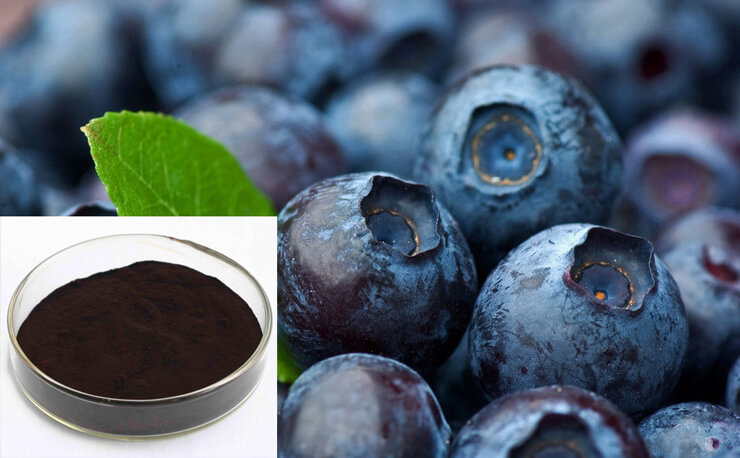Anthocyanins pain our hearts when we hear about cancer and it becomes more painful for the people surrounding the patient suffering from cancer to see his/her beloved one agonizing all the time. Every day many people are being diagnosed with cancer and as such, no medicine can cure cancer completely and permanently. The medicines can only slow down the rate of their growth.
It would be better if we could adopt those preventive habits that can lower the risk of cancer such as improving our diet, avoiding fast food, exercising regularly, avoiding smoking, and avoiding fatty processed meat that contains the carcinogenic additive sodium nitrate that contributes to developing cancer.
Along with following all of these preventive measures, you must consider adding anthocyanin to your diet to impede cancer.
Anthocyanins are chemical compounds that can improve your overall health and prevent cancer. It has antioxidant properties that lower the risk of getting contracted cancer. Three main anthocyanins keep your body healthy and prepare you to fight against diseases.
Cyanidin
Cyanidin is mainly found in berries and has numerous health benefits. It acts as a potent anti-cancer and anti-mutagenic which help to control the rapid growth of cells. The main sources of cyanidin are bilberries, blackberries, raspberries, chokeberries, and elderberries. Its anti-toxic properties work toward normal cells. Studies have proved that cyanidin can extensively reduce the risk of leukemia, lung cancer, colon cancer, skin cancer, and prostate cancer.
Malvidin
Berries are the infinite source of malvidin with bilberries and blueberries both containing tremendously high levels. Cowpeas and red grapes are other good sources of malvidin. Studies have found that malvidin is extracted from black rice also.
It is a powerful antioxidant that acts as an anti-cancer agent and inhibits the growth of tumor cells by restricting the growth of pre-malignant cells and also restrains the growth of new blood vessels.
Peonidin
Berries are a great source of peonidin and can be hugely extracted from bilberries, blueberries, and cranberries all containing high levels of this antioxidant. Cherries and purple plums are also rich in peonidin.
Research and results have shown that treatment with peonidin resulted in an intense inhibitory effect on cell growth. It also contributes to obstructing the growth of Lewis lung carcinoma cells and cell death.
Delphinidin
Fruits are a great source of delphinidin. Black beans, eggplant, cowpeas, cranberries, blueberries, bilberries, and blackcurrants are the richest food sources of this extremely powerful antioxidant that helps protect our body from damaging free radicals that highly contribute to developing cancer and also increase the risk of heart disease by restricting the flow of blood.
Pelargonidin
Pelargonidin is a strong phytonutrient that acts as a powerful antioxidant and protects the body’s cells from harmful free radicals released when oxygen-related reactions are performed. These can increase the risk of developing cancer, and also increase the risk of contracting diabetes, and also accelerate the aging process.
Some of the best sources of pelargonidin are chokeberries, kidney beans, radishes, raspberries, and strawberries.
Early research suggests that it may prevent cancer, heart disease, and neurodegenerative disorders. Moreover, this anthocyanin can aid the treatment of diabetes by reducing the level of blood glucose. However, more extensive studies are needed before these health benefits can be claimed.
Petunidin
Petunidin can mainly be extracted from different fruits and vegetables. Bilberries, blueberries, and cowpeas are all far-fetched sources of this anthocyanin.
Seeking to find the health benefits of petunidin, it is an influential antioxidant. Some researchers have advised that this anthocyanin is also one of the chief mediums behind the usefulness of berries. They have even suggested that the decreased cancer risk, lower diabetes risk, and lower heart disease risk associated with taking berries in the diet is down to petunidin. Nonetheless, there are no studies to support these claims yet.
Berries generally receive a lot of good exposure and after going through this article we hope you can understand why. They are rich in powerful anthocyanins which can lower the risk of disease, protect the body’s cells, and keep your body in the right shape. So if berries are still not part of your daily diet, start making some significant changes in your diet.








